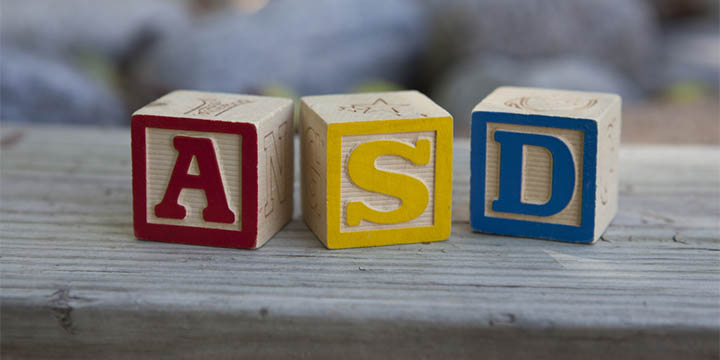Autism spectrum disorder (ASD) is a lifelong disorder that affects up to one in 100 Australians. If you’ve noticed your child interacts, communicates or behaves differently from their peers on a regular basis, and it is impacting their daily life, it could be time to seek a professional assessment from a child psychologist. By following diagnostic criteria, psychologists can diagnose children with ASD and equip them with tools and strategies to cope with related challenges.
The diagnostic criteria includes a psychological assessment of the child or adolescent to determine whether:
- The child has persistent difficulties in social communication and interaction;
- The child has restricted or repetitive patterns of behaviour (including hyper- or hypo-reactivity, repetitive motor movements and inflexible adherence to routine);
- Highly restricted, fixated interests are present;
- Symptoms are present in early childhood;
- Any disturbances are not better explained by intellectual disability or development disorder.
Autism Severity Levels
As a parent or guardian, you may have heard the terms ‘Asperger’s’ and ‘Autism’ used to describe different disorders. Recently, these two disorders were grouped under one umbrella term – Autism Spectrum Disorder. Rather than being subdivided as different disorders, the two are now differentiated by severity levels. A respected diagnostic guide, the Diagnostic and Statistical Manual (DSM-5), defines the three levels of severity.
A brief overview of the levels, as defined by DSM-5:
- Level 3 – ‘Requiring very substantial support’
Severe deficits in verbal and nonverbal social communication skills cause severe impairments in functioning, very limited initiation of social interactions, and minimal response to social overtures from others. For example, a person with few words of intelligible speech who rarely initiates interaction and, when he or she does, makes unusual approaches to meet needs only and responds to only very direct social approaches. Inflexibility of behaviour, extreme difficulty in coping with change, or other restricted/repetitive behaviours markedly interfere with functioning in all spheres. Great distress/difficulty changing focus or action.
- Level 2 – ‘Requiring substantial support’
Marked deficits in verbal and nonverbal social communication skills; social impairments apparent even with supports in place; limited initiation of social interactions; and reduced or abnormal responses to social overtures from others. For example, a person who speaks simple sentences, whose interaction is limited to narrow special interests, and who has markedly odd nonverbal communication.
Inflexibility of behaviour, difficulty coping with change, or other restricted/repetitive behaviours, appears frequently enough to be obvious to the casual observer and interfere with functioning in a variety of contexts. Distress and/or difficulty changing focus or action.
- Level 1 – ‘Requiring support’
Without supports in place, deficits in social communication cause noticeable impairments. Difficulty initiating social interactions, and clear examples of atypical or unsuccessful response to social overtures of others. May appear to have decreased interest in social interactions. For example, a person who is able to speak in full sentences and engages in communication but whose to-and-fro conversation with others fails, and whose attempts to make friends are odd and typically unsuccessful. Inflexibility of behaviour causes significant interference with functioning in one or more contexts. Difficulty switching between activities. Problems of organisation and planning hamper independence.
If you would like support for your child with ASD, contact us on 02 6262 6157 to speak with a child psychologist today or secure an appointment online.
